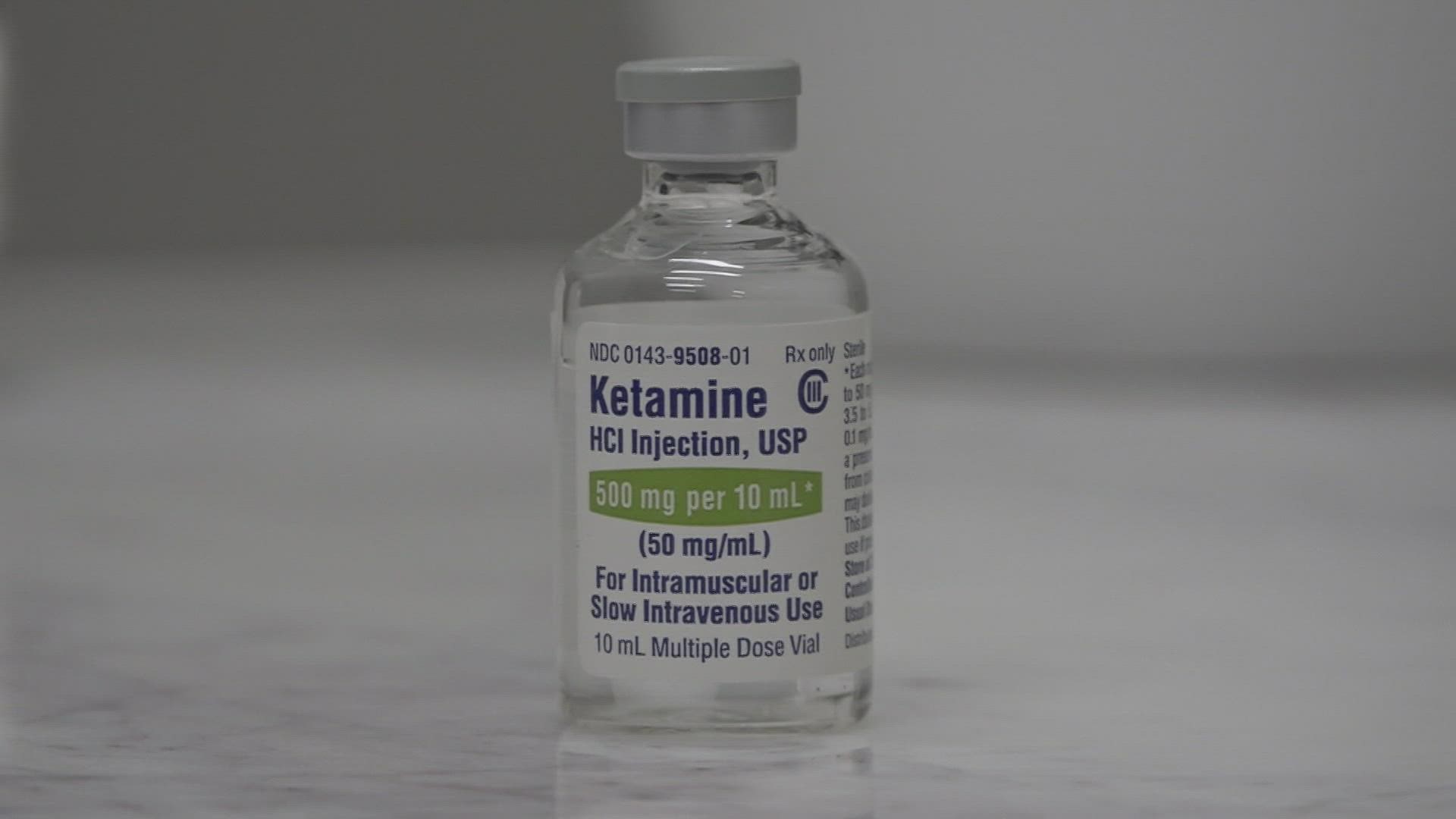WINSTON-SALEM, N.C. — Talk therapy, prescription pills, and even electric convulsive shock therapy. People who are really depressed or anxious have had pretty much the same treatment options for decades. For people who tried them all with little success, life can seem overwhelming.
“I was suffering immensely. It felt as though there was nothing else that could help me. I just couldn’t take it anymore," said Nicolas.
"Years and years of attempted therapy, medication. And I’d even go as far as to say using alcohol to treat what’s going on with me," Bill said.
“There was an attempted suicide. I was an in-patient for a while," Katelyn said.
That’s why Nicolas, Bill, and Katelyn all turned to a new treatment: using a legal form of the street drug Ketamine, also known as Special K, Horse Tranquilizer, or Cat Valium.
“If I hadn’t found Ketamine, I absolutely would not be here today. I can say that confidently," Nicolas said.
"It put a lot of things in perspective and made me realize the things I typically worry about and stress about are fixable," Bill said. "I can credit the therapy for that. It’s working.”
"Transformative," Katelyn said. "I just had a psych evaluation a month ago, I’m no longer qualified as clinically depressed. It’s been about 15 years since I had that diagnosis, and I didn’t think there was another side to it. So it’s been pretty incredible.”
KETAMINE RESEARCH
In recent years, a growing pile of research has shown “Ketamine robustly reduces depressive symptoms.” Especially “in patients more resistant to prior medications.”
Dr. Dennis Charney at Mount Sinai in New York was one of the first to study Ketamine therapy.
“A case can be made that the drugs have been available since 1960. There hasn’t been a novel mechanism identified for the treatment of depression until Ketamine," Charney said.
He adds that traditional antidepressants work on neurotransmitters such as serotonin and norepinephrine that help nerves in the brain communicate. Ketamine targets a different one called glutamate. It's much faster than drugs like Prozac, Cymbalta, or Zoloft.
RELATED: How to improve your mental health
THE TREATMENT PROCESS
And it’s now available in the Triad. In an ordinary-looking building, locked up in a safe, is the legal, FDA-approved version of Ketamine used by Restoring Wellness Solutions in Winston-Salem.
“I’m a nurse anesthetist by training. I have a master’s degree in anesthesia and have practiced here in Winston-Salem since 2015," said Anna Plummer-Roberts.
She opened the clinic in February after hearing stories of success among depression and anxiety patients.
“Ketamine works well for treatment-resistance patients," she said. "These are patients that have not had good results with trying traditional medications. Ketamine for some of those patients can be life-changing. It gets them back to finding joy in their life, relating to their family, being functional at work.”
Treatments consist of an IV drip over a two-hour appointment. You’re hooked up to heart monitors to make sure your vitals are stable. It’s recommended you listen to music without words and cover your eyes.
“What we’re looking for is to get an alternation in their perception to some degree. Whether they feel like their body may get larger or smaller, or art on the wall may kinda change shape. They will have a change in their senses while they are here," Plummer-Roberts said. “That’s the point where Ketamine is getting to the brain and working on the glutamate system.”
The clinic says six infusions over two to three weeks produces the best results.
HOW MUCH IS IT?
“Ketamine is pretty poorly covered by insurance across the board for mental health," Plummer-Roberts said.
At $450 per infusion, that’s $2,700 for the initial doses. You might need a maintenance dose every one to two months after that. Money, some say, is well spent.
'A DRAMATIC IMPROVEMENT'
“It’s not voodoo, it’s not snake oil. Your brain is kinda like a ski slope. We have these treads we’ve gone down for years and years. They are really developed in there. Ketamine kinda acts like a fresh sheet of snow," Katelyn said. "You really get a clean slate, and you have the ability to change those behaviors.”
“It’s been a dramatic improvement. I went back to school after a four-year absence. I had been trying and trying to stay in college. And my depression always took me out of it," Nicholas said. "I had multiple hospitalizations, things that just completely debilitated me, and I since then have moved into an apartment with my fiancé, we got engaged. We are just living a completely different life together.”
“Go into it with an open mind," Bill said. "It’s not as scary as one might think."
Everyone we talked with stressed that Ketamine should be a last-resort treatment after all other options are tried. They also said do not try taking doses on your own from illegally purchased drugs. That can have dangerous side effects.

